Class-action charges Apple, AT&T with unlawful business practices
A new class-action lawsuit charges Apple and AT&T with intentionally breaking the iPhones of customers who unlocked or installed third-party applications on the handsets, and further alleges that the two firms conspired from the inception of their partnership to illegally monopolize portions of the mobile cell phone market.
In the suit, Washington resident Paul Holman and California resident Lucy Rivello allege that Apple and AT&T unlawfully agreed prior to the iPhone's release that the handset would not be unlocked under any circumstances as a means of preventing consumers from using programs or services other than those which directly generate revenues for the two companies.
Based on "information and belief" they claim that Apple and AT&T, once faced with a flurry of third-party iPhone applications and unlocking solutions, agreed to go beyond their already unlawful tactics of locking users down to their services and software by taking affirmative steps to break the iPhones of consumers who lawfully unlocked the AT&T SIM card or who installed third-party apps.
The suit cites Apple's Sept. 24 warning to customers who had unlocked their iPhones and asserts that the company had not actually "'discovered' that 'many' unlocking programs would 'cause irreparable damage' to the iPhone" but instead "had been busy engineering its software update so that it would disable any Third Party Apps and the SIM card unlocks."
"[T]he update was also designed to cause damage to the iPhone in the event that any use of non-Apple/AT&T products was detected," the complaint says.
None of these changes in the iPhone software update version 1.1.1 were technically required for the purpose of the upgrade, the suit claims, but were "designed solely to advance Apple's unlawful purposes and conduct."
Apple and AT&T are further charged at various points in the suit with illegally attempting to stifle outside competition from third-party developers who wish to write and sell applications for iPhone, imposing an unjustifiable AT&T service termination fee given that the handset is not subsidized, and making false claims to customers about third-party software and unlocking solutions voiding their handset's warranty.
"To protect its unlawful market position and the anticipated unlawful profits Apple and AT&T expected to earn, Apple repeatedly announced that any attempt to unlock the iPhone SIM or to install Third Party Apps would void the Apple warranty," the complaint says. "This assertion was false as a matter of federal law, and was known by Apple to be false when made. The Federal Magnuson-Moss Warranty Act prohibits conditioning the iPhone warranty on the use of Apple products only, or on the use of AT&T service only, [...], which is effectively what Apple's warranty approach unlawfully does."
Apple corporate is also accused of ordering its retail store employees to deny service to customers adversely affected by the v1.1.1 iPhone software update even though it was "technically feasible to restore the iPhone from version 1.1.1" and for instructing its spokespeople to make the absurd suggestion that customers adversely affected by the software update stop seeking help and instead just "buy a new iPhone."
These and several other manipulative measures on the part of Apple and AT&T are damaging to iPhone owners in that they are being forced to pay higher costs for services that would otherwise be more affordable, the suit claims, and are similarly being forced to forgo useful third-party improvements to their iPhones simply because they do not come from either of the two companies.
For instance, the complaint notes that because Plaintiff Holman travels for business a great deal, he generally unlocks his phones to accept other SIM cards, so that he can use them abroad with a "local" service provider at lower rates. But after buying an iPhone and traveling to Finland — a country not covered by AT&T's "worldwide" plan — his three days of data use on the iPhone, consisting primarily of downloading e-mail messages, cost him $381 in roaming charges.
Using a non-Apple unlocked phone on a recent trip to Amsterdam, Holman reportedly used a prepaid SIM card from T-Mobile to receive his email and was charged only $20, the suit says.
Overall, Apple and AT&T are charged — either jointly or separately — in the suit with six formal counts, which include alleged violations of the California Business and Profession's Code, The Cartwright Act, The Sherman Act, The Federal Trade Commission Act, The Communications Act of 1934, and The Telecommunications Act of 1996, as well as rules and policies established by the FCC.
On some of the counts, the suit seeks damages in the amount of "no less than $200 million," while in others it requests "no less than $600 million."
Attorneys for Hoffman & Lazear, which filed the suit on behalf of Holman and Rivello, said they seek to expand their class-action to cover all individuals and entities who purchased an iPhone on or after June 29, 2007 and sustained damages as a result. At this time, they say, the size of the Plaintiff Class exceeds 100 but the exact number cannot be determined without discovery of accounting records from both Apple and AT&T.
A similar class-action was filed against Apple in California, also on Oct. 5.
 Kasper Jade
Kasper Jade












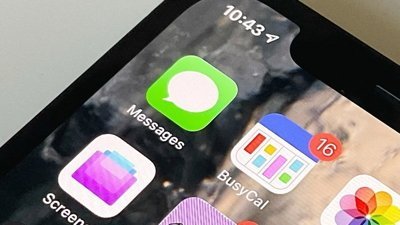
 Andrew Orr
Andrew Orr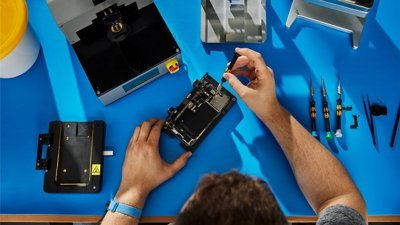
 Marko Zivkovic
Marko Zivkovic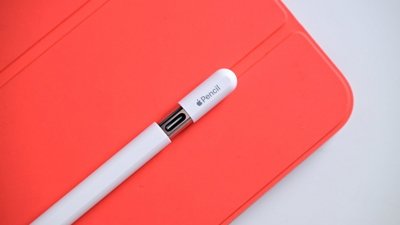
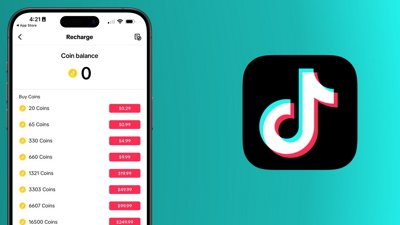
 Wesley Hilliard
Wesley Hilliard
 Malcolm Owen
Malcolm Owen
 Amber Neely
Amber Neely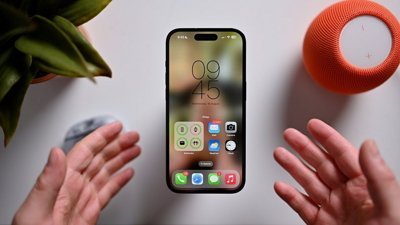
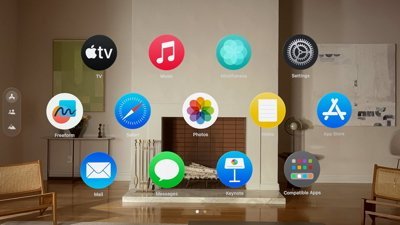







107 Comments
Why is the article here again. Wasn't this suit already covered here????
Based on "information and belief" they claim that Apple and AT&T, once faced with a flurry of third-party iPhone applications and unlocking solutions, agreed to go beyond their already unlawful tactics of locking users down to their services and software by taking affirmative steps to break the iPhones of consumers who lawfully unlocked the AT&T SIM card or who installed third-party apps.
...
At this time, they say, the size of the Plaintiff Class exceeds 100 but the exact number cannot be determined without discovery of accounting records from both Apple and AT&T.
[ View this article at AppleInsider.com ]
Ah, the great American pastime - sue someone successful. Sorta like the lottery but the ticket costs a bit more.
They're fishing for info. I'm guessing the info they are seeking would fetch a pretty price.
Why is the article here again. Wasn't this suit already covered here????
That's a different case.
Apple must quickly crush these lawsuits or risk further negative publicity for iPhone. I know, I know, this lawsuit is without merit, but it's bad for business.
Why is the article here again. Wasn't this suit already covered here????
This is a different class-action.
K
These are certainly interesting times for apple - i don't recall other cell phone releases experiencing this degree of activism - Certainly, Apple must be learning more about their customer base from this experience. I'm sure they (and ATT) thought through the legal analysis over and over before the product's release. It will be interesting to see (assuming any of these cases actually are litigated) what consumers rights are with respect to cell phones, plan restrictions, and attempts by a company to alter warranty coverage based on alterations to a product's software!